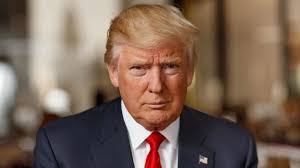Donald Trump announced his victory in the U.S. presidential election on Wednesday morning, outlining several promises regarding domestic policies and America’s approach to the Middle East.
World leaders, including those from the Middle East, quickly responded to Trump’s victory. Some extended their congratulations, while others suggested that concrete actions should follow his statements and promises. Notably, Damascus offered no immediate reaction to the result.
Analysts suggest that, for Syria, what matters most is the actual substance of U.S. policy, which is shaped by the broader American administration rather than any individual statements or promises made during the election campaign.
US military presence in Syria
Although U.S. foreign policies are typically shaped by specific structures within the American administration, some estimates suggest that Donald Trump’s personality could still influence these policies. This is particularly relevant given his previous decisions related to Syria, including the controversial withdrawal of U.S. forces from bases in northeastern Syria.
In this context, Turkish Foreign Minister Hakan Fidan, hours after Trump declared his victory, indicated that he did not rule out the possibility of further U.S. withdrawals from Syria and Iraq following the U.S. presidential election. His comments were reported by the Turkish newspaper Yeni Safak.
The SDF’s position on Trump’s victory
During his presidency from 2017 to 2021, Donald Trump made several significant decisions regarding Syria, many of which provoked the ire of his local partner, the Syrian Democratic Forces (SDF). Most notably, Trump ordered the withdrawal of U.S. forces from northeastern Syria and effectively gave Turkey the green light to launch a military operation in the region, which was under SDF control at the time.
In this context, the Lebanese newspaper An-Nahar recently quoted Kurdish sources expressing concerns over Trump’s potential return to the White House. The sources indicated that the SDF and its political wing, the SDF Council, are wary of Trump’s comeback, given the impact of his previous policies in the region.
The new U.S. president will likely face numerous challenges in Syria. In recent years, the situation in eastern Syria has become more volatile, with an increasing number of attacks on U.S. military bases in the region. Additionally, the formation of the Arab Tribal Forces has led to escalating tensions, with these groups aiming to challenge the SDF’s control over key areas. Other complicating factors include the ongoing issue of missing Americans in Syria and broader regional instability.
These challenges are part of a larger set of issues that the U.S. president will need to address across the Middle East, where tensions are rising in Lebanon and Palestine. There are growing fears that the escalation could spread to other areas where U.S. forces are stationed, particularly in Syria and Iraq.
This article was translated and edited by The Syrian Observer. The Syrian Observer has not verified the content of this story. Responsibility for the information and views set out in this article lies entirely with the author.


